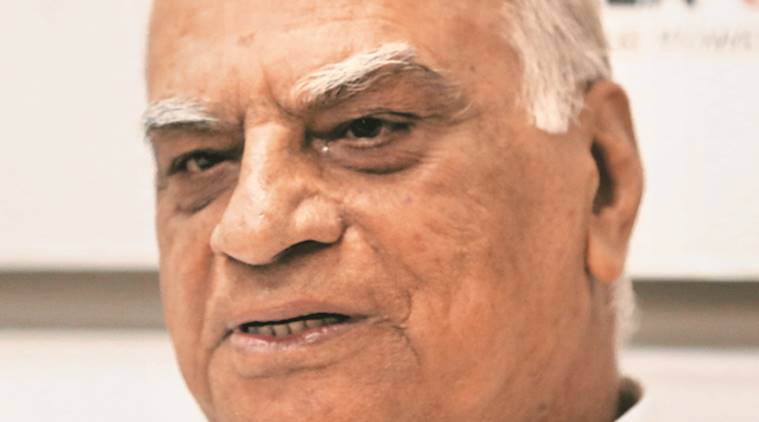 Mendiratta has written to poll panel
Mendiratta has written to poll panel
A former legal advisor to the Election Commission (EC) has red-flagged the Centre’s order setting up a Delimitation Commission for Arunachal Pradesh, Manipur, Assam and Nagaland, calling it “unconstitutional” and “illegal”.
S K Mendiratta, who served with the EC for over 50 years, wrote a letter to the three election commissioners last month, pointing out that the Law Ministry’s notification of March 6 violates the Representation of the People Act 1950.
Section 8A of the RP Act 1950, introduced by Parliament in 2008, states that delimitation in the four northeastern states, when held, would fall within the EC’s remit. Hence, any delimitation exercise in Arunachal, Manipur, Assam and Nagaland by the new Delimitation Commission would be “declared void by the courts” and, subsequently, result in “wastage of huge precious public funds”, Mendiratta wrote in his letter.
The four states had been left out of the last delimitation exercise, completed in 2008. According to sources, the EC forwarded Mehndiratta’s letter to the Law Ministry about two weeks ago.
Delimitation is the act of redrawing boundaries of Lok Sabha and Assembly constituencies to represent changes in population and is done on the basis of the preceding Census.
Northeast’s concerns
In the last delimitation exercise, completed in 2008, Arunachal, Manipur, Assam, Nagaland were kept out due to apprehensions over use of the 2001 Census. The Centre’s move to club the four with J&K comes in the backdrop of unrest in the region over CAA.
The Law Ministry notified the Delimitation Commission for the four northeast states and Jammu and Kashmir on March 6. Former Supreme Court judge Justice Ranjana Prakash Desai is its chairperson, and Election Commissioner Sushil Chandra is the EC’s representative on the panel.
Desai told The Indian Express she is aware of the letter written by Mendiratta, but did not wish to say anything further. Mendiratta refused to comment on the matter. Chandra told this newspaper, “Yes, a letter was received, and it is being considered at the appropriate level.”
Explained: How states are split into seats
Mendiratta, who left the EC in 2018, is considered an expert on delimitation and had been an adviser with the 2002 Delimitation Commission, set up under Justice Kuldip Singh. Mendiratta had also assisted the EC in delimiting Uttarakhand into 70 constituencies under the UP Reorganisation Act, 2000.
The last delimitation exercise, that started in 2002 and ended in 2008, had kept out Arunachal, Assam, Manipur and Nagaland as the use of the 2001 Census for it had been challenged by several organisations before the Gauhati High Court, on the ground that it was riddled with defects.
The tribal communities in the four states feared that the delimitation exercise would change the composition of seats reserved for them, hurting their electoral interests. As violence erupted, the Delimitation Act of 2002 was amended on January 14, 2008, to empower the President to postpone the exercise in these states.
Subsequently, Parliament had decided that instead of creating another Delimitation Commission for the limited purpose of redrawing seat boundaries in the four northeastern states, the exercise there would be carried out by the EC. Section 8A of the RP Act 1950 was introduced for this purpose.
Parliament was guided by the fact that there is precedence of the EC being vested with the authority to redraw boundaries of constituencies – including when Delhi was delimited into 70 seats in 1991-92, and Uttarakhand into 70 seats in 2000.